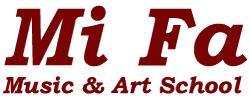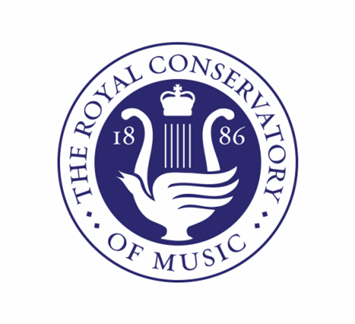
The RCM, or Royal Conservatory of Music, enjoys an amazing reputation within music and music education. Many of our students ask about this program: what it is, what it can offer them, and why they should be interested in it.
In this article, we’ll use the “5 W’s” of journalism—what, who, where, when, why (and for this article we also include how)—to get to a better understanding of the RCM and its exams. By the end, you’ll have a better picture of what the Royal Conservatory of Music is and what it can do for you.
WHAT IS THE RCM?
RCM is short for Royal Conservatory of Music, a music education institution of worldwide prestige and a century-plus lifespan. From its creation in 1886 in Toronto, Ontario, the Royal Conservatory has operated as a centre to train the best and brightest musicians. In addition to operating as an educational institution, the conservatory works hard to promote music in other important ways: the Frederick Harris Music Company, now owned by the RCM, is an important publisher of music scores; three performance venues, owned by the RCM, host over 100 concerts per year and feature musicians from around the world; and important exchange programs to other academies are made possible by the RCM, as well.
The RCM also runs the Royal Conservatory Certification Program, and this is what many people mean when they refer to “RCM.” This program organizes examinations that take place at authorized centres throughout Canada and the rest of the world.
WHO ASSOCIATES WITH THE RCM?
Edward Fisher first founded the the Conservatory in 1886 as “The Toronto Conservatory of Music.” King George VI, of the British Commonwealth, awarded the school official recognition in 1947, thereby changing its name to the Royal Conservatory of Music.
This conservatory has a history of the highest standards, producing exemplary musicians. Perhaps the most telling proof of the school’s excellence is the list of alumni who have graduated from their program. These alumni include well-known musicians such as Diana Krall, Sarah MacLachlan and Robert Goulet; composers and conductors, like R. Murray Schafer and Paul Shaffer, have also gone through the program; and perhaps the greatest alumni of all is Glenn Gould, the Canadian virtuoso piano player and Bach aficianado.
The list of alumni includes many influential people who have found careers outside of music, too, like the actress Sandra Oh. Even Stephen Harper, the 22nd Prime Minister of Canada, went through the program. As we at MiFa always say, education in music enriches all other areas of life, and for the long list of RCM alumni, this is more than proof.
As for the Certificate program, over 100,000 exams are taken each year in over 300 countries! The Certificate program is worldwide and an internationally-recognized proof of achievement. The number of those who work towards progressing through the levels RCM certification are growing, each year.
WHERE IS THE RCM? AND WHEN IS BEST TO START?
The actual conservatory is located in Toronto, Ontario. Students around the world travel to improve their musicianship to the highest level. The Glenn Gould School, named after the legendary pianist, specializes in post-secondary education.
For the majority of students, however, the RCM is close by: examinations take place at local centres, authorized by the conservatory, at specific dates during the year. And, to train and prepare for those exams, your instructor at MiFa is at the ready. Any time is a good time to start preparing for the RCM exams, but for the first level age 7 is common to start. There are two preparatory levels for the first level, so lessons can start earlier than 7, however. Adults of all ages can also take these exams.
HOW DO THE RCM EXAMS WORK?
There are 10 levels in this exam system, and, generally speaking, these are achievable within 10 years. Starting this program is common for children around 7 years of age, which means that, if they stick to the program, they can conclude level 10 by the time of high school graduation.
Two music books to study come with each level. These build technical ability and repertoire for the students. This is where your teacher at MiFa comes in!
As for examination day, exams at level 1 are much different from 10. As an example, level 1 exams usually take around 15 minutes. Your teacher is equipped to make sure you are completely prepared to succeed for your exam, no matter the level. That’s our job.
WHY SHOULD I TAKE THE RCM EXAMS?
This is the good part.
Participating in this examination program does so much for the growing musician. There are so many benefits. Here are just a few:
The 10 levels guide the student with a logical progression of difficulty. Level 2 builds on level 1, and level 3 builds on level 2. A natural pedagogy is built in to the RCM system, and it’s very effective as learning material.
Progressing through the levels builds an incredible repertoire of music for the student to enjoy. While classical music forms the core of the program, other genres, such as jazz and pop, are also included. This is a naturally enjoyable process.
Levels 9 and 10 can be included as high school credit for students. This is a great benefit to work towards for itself, but in addition, RCM experience looks very attractive when applying to post-secondary institutions or employers. It is “hard proof” of musical achievement.
The exams are goals that motivate students to learn. Passing these exams build confidence in a growing musician, giving energy to go for that important next step.
Finally: the piano is the standard instrument for RCM exams. MiFa specializes in teaching piano to all ages and skills, and we’re ready to start your RCM preparation today.
Sources:
- 2022 RCM Syllabus example.
- Royal Conservatory of Music homepage. Useful for learning more and for booking RCM exams.
- Wikipedia RCM page.


